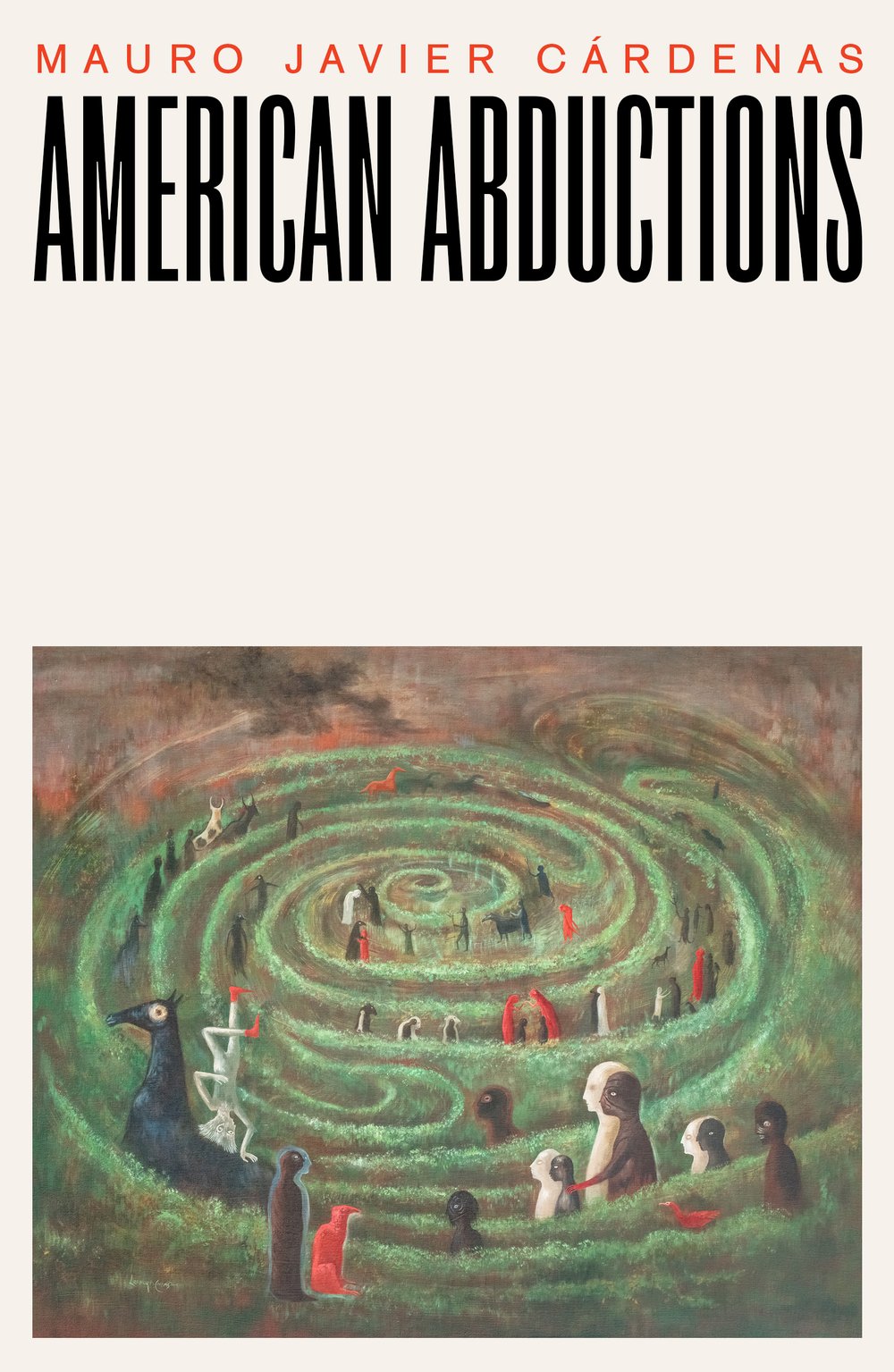American Abductions

Torrential and dreamlike, Mauro Javier Cárdenas’ novel unfurls into a layered, poignant, and unflinching portrait of how family separations have impacted the minds of Latin American deportees in a technology-bound 21st century.
American Abductions opens in a near-future United States whose omnipresence of data-harvesting and algorithms has enabled the mass incarceration and deportation of Latin Americans—regardless of citizenship. After their father is abducted by immigration officials before their eyes and deported to Colombia, Ada and her sister Eva are left to contend with a United States as all-seeing as it is hostile. Now adults, Ada remains in San Francisco while Eva has joined their father in Colombia, tending him in his ailing health. When his condition worsens, Eva asks Ada to come see them: a nearly impossible feat, given the United States’ restrictions on Latin Americans’ movements. Ada, terribly alone, must come to terms with the violence of American society and the grief of lost community. Exploring the role of technology, mass society, and American expectations on how Latin American deportees should tell their stories, the novel delves into the ties, memories, and lines of code binding communities together.
Mauro Javier Cárdenas has been lauded as one of the most promising Latin American authors, and in American Abductions, his deconstruction of American society and the surveillance state proves his generation-defining acuity and storytelling. The book’s polyphony of mysticism, technology, and philosophy calls to mind the perceptive dystopian visions of Philip K. Dick and the visionary stylistic fluidity of Samuel Delany. The result is a sharp and metaphysical narrative, a masterwork examining the place of Latin Americans in a United States that is always changing.

Mauro Javier Cárdenas grew up in Guayaquil, Ecuador, and graduated with a degree in Economics from Stanford University. He's the author of Aphasia (FSG, 2020) and The Revolutionaries Try Again (Coffee House Press, 2016). In 2016 he received a Joseph Henry Jackson Award and in 2017 the Hay Festival included him in Bogota 39, a selection of the best young Latin American novelists.

